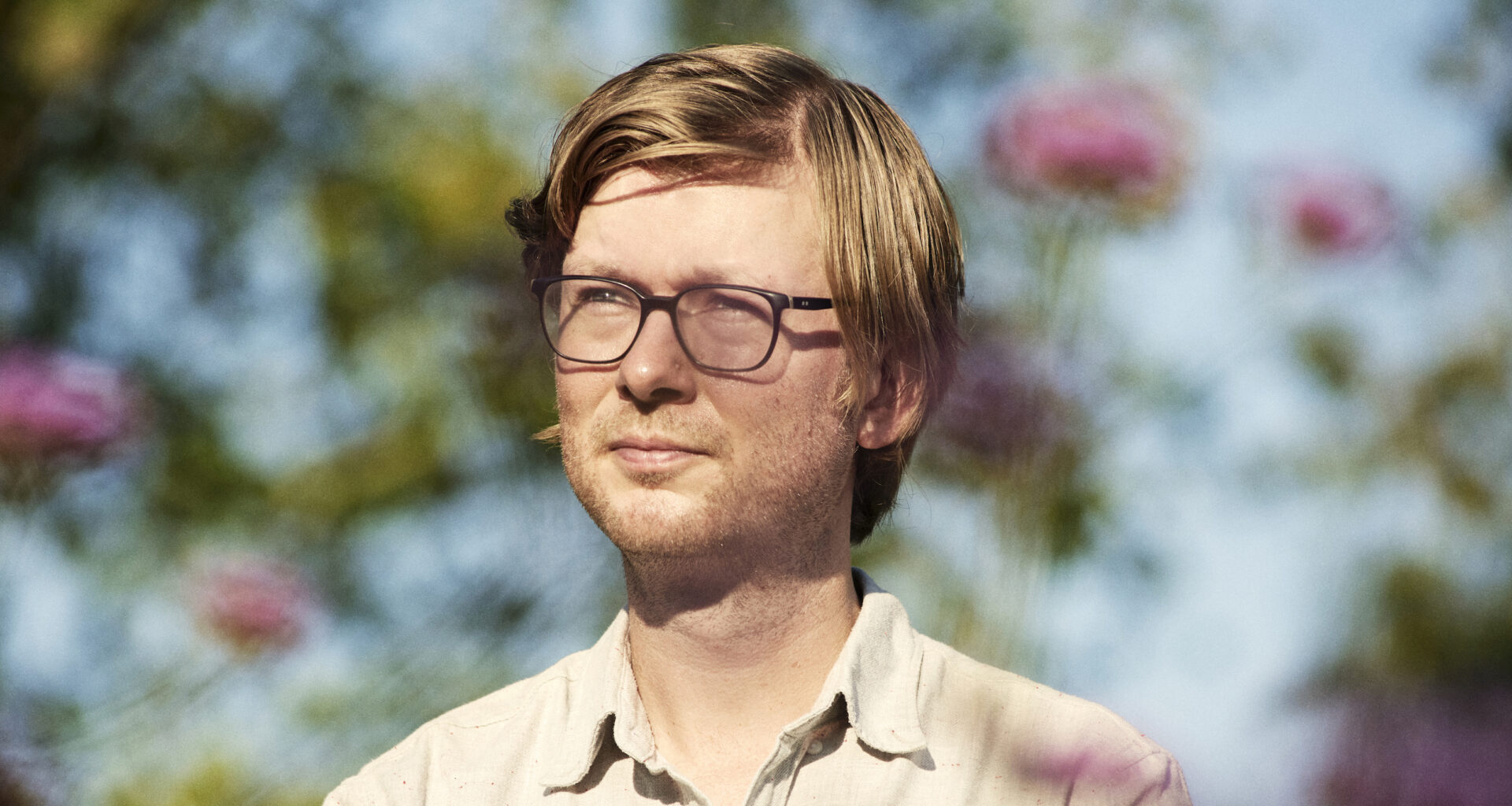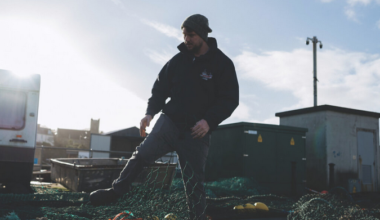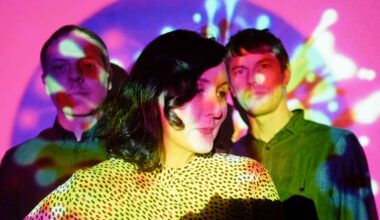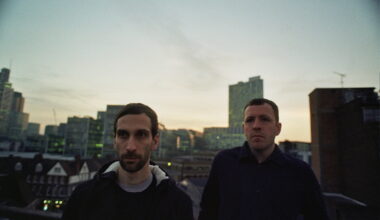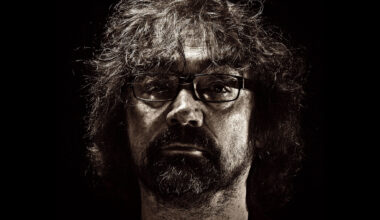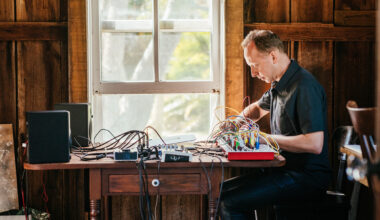Stuck in the UK with no equipment during lockdown, Public Service Broadcasting’s J Willgoose, Esq started experimenting to pass the time. The result is Late Night Final, a fascinating side project devised for the very darkest of hours
While making ‘A Wonderful Hope’, there was a tipping point, a defining moment where J Willgoose, Esq knew his vision for the album had flipped. What had begun as an “atmospheric and floaty” ambient experiment during lockdown had suddenly changed tack, as he found himself led by the sounds he was producing.
“When I started, I didn’t really have a space in mind for it, other than in my own head,” he says. “But there’s a pitched bass drum that comes in on the title track, and as soon as I heard that I thought, ‘Ooh, maybe this is something entirely different to what I thought I had on my hands’. I was transported to a live environment, a dance tent late at night, full of warmth and joy, and I just imagined it could work in the right kind of scenario.”
And boy, does it work. Willgoose’s epiphany led to him composing the rest of the record with that mindset, constantly tweaking to ensure tonal continuity throughout. Credited to Late Night Final and set over four tracks, the amorphous, kosmische-like drift of ‘A Wonderful Hope’ is hugely exhilarating, as it veers into continually shifting pitches and gorgeously percussive ebbs and flows – the sonic equivalent of riding on eddies – amounting to 45 minutes of sheer immersive bliss.
“I’ve learned with Public Service Broadcasting not to be too wedded to an idea,” says Willgoose. “You’re playing something, then all of a sudden you go off on a complete tangent. You get to trust those feelings. And when it happened with this, I thought, ‘Just go with it and see where it takes you, just let it sprawl’. I’m really pleased with it.”
Named after the final track on Public Service Broadcasting’s 2013 debut album, ‘Inform – Educate – Entertain’, Willgoose’s Late Night Final project retains that connection to his “corduroy-clad” main band. As a moniker, though, its after-dark aura also succinctly describes both how ‘A Wonderful Hope’ feels and the best time of day to listen to it.
Willgoose originally intended to explore a more meditative sound “as a bit of a release valve” after the next PSB offering. Having moved abroad for most of 2019 to write material, he came back to the UK in January this year to rest up for a while – his wife was about to give birth – intending to head back out with family in tow to finish the recording. But as the virus restrictions hit, he found himself stuck at home having to rejig the order of things and Late Night Final was the result.
“I always need to be doing something vaguely creative, for mental health reasons as much as anything, otherwise I get quite jittery and anxious,” notes Willgoose. “So the point of this was to see if I could get something going to divert my mind. It was amazing how being in the studio for two hours, even just plugging stuff in, instantly took me to a different headspace and distracted me from the gathering clouds of, you know, quite serious events that were happening.”
With all PSB’s gear stranded abroad, Willgoose also had to rethink his usual approach. He resorted to rummaging through cupboards and down the back of shelves for equipment, cobbling together dusty old synths, reverb units and “stuff from the 90s” that he’d never got around to selling. Although he stresses how much he loves PSB – “I don’t want to make it sound like I’m shackled to this beast that I don’t enjoy,” he laughs – his excitement is palpable as he recalls how his makeshift studio came together.
“I ordered a few new bits and bobs, but mostly I just bodged it all,” he continues. “I worked without a computer and I was using hardware sequencers, recording takes live rather than mixing anything afterwards. The main sound on the album is my old Nord Rack, which loads of bands used back in the day. I think Leftfield did most of ‘Rhythm And Stealth’ on one.
“So it was a very different way of working to PSB, which is more refined, edited and painstaking. With this, it was great focusing on mood, texture and colour, as well as on interesting ways of coming up with melodies. It was much more tactile and hands-on. I had physical control, with everything on a fader so I could bring things in and out. I was standing for most of it too. I never felt the stress or sense of impending failure that I have when I’m trying to write for PSB. It was quite liberating.”
Willgoose is no stranger to working solo, having started out that way in PSB. But did he feel like a traitor, doing this without his PSB chums?
“We’re not really the kind of band where we’re living in each other’s pockets or aren’t free to go and explore things with different people,” he replies. “Doing something like this keeps the wheels on. It’s a reminder that we haven’t gone anywhere.”
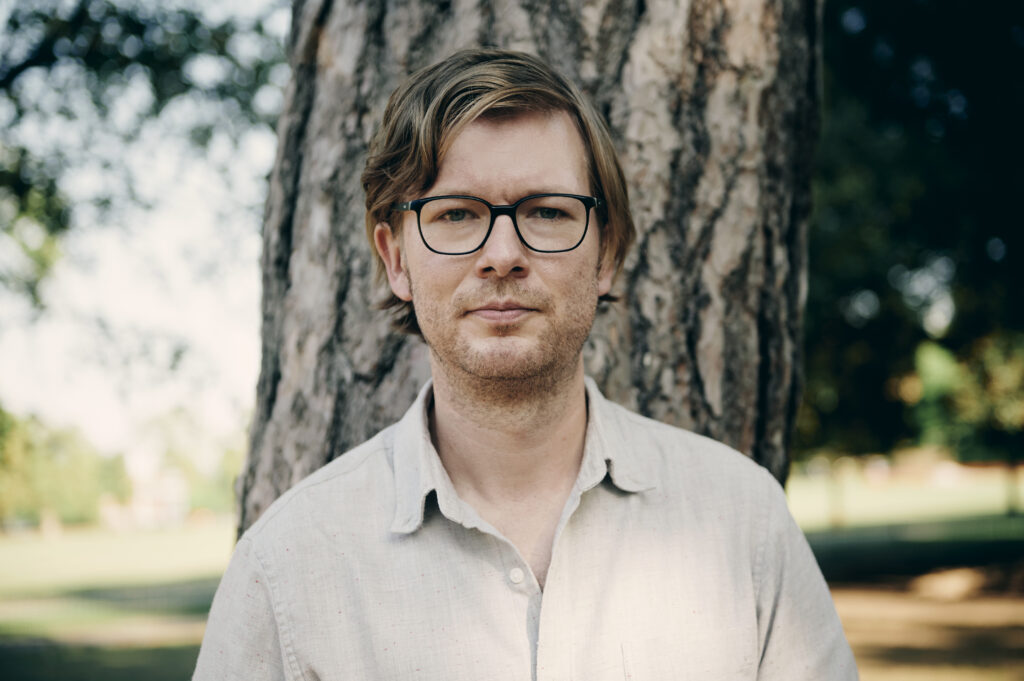
Eschewing Public Service Broadcasting’s propulsive guitar meets electronics meets archive dialogue template, ‘A Wonderful Hope’ finds Willgoose exploring random music generation techniques to create unpredictable melodies, rhythms, stutters and glitches. The long live takes were another notable departure from the PSB way. They were inspired in part by Portland drone artist Amulets and experimental Berlin musician Hainbach, who has built quite a following on YouTube for his techno-infused video performances.
“You can actually see what he’s doing, how he’s manipulating sounds and playing with tape loops,” says Willgoose of Hainbach. “It looks like a really satisfying way of working and I wanted to capture some of that spontaneity. The beauty of recording like that is you lose the endless tinkering aspect I usually get when I’m finishing a piece. I go around the absolute pipe and almost lose my mind making tiny changes. But if you’ve just done a live take for 12 minutes and you think it sounded good, then you listen back and it still sounds good, that’s it, you can’t really do anything else.”
Amulets and Hainbach weren’t the only springboards, though, not by a long chalk. You can occasionally detect mellower fragments of the PSB sound in the record’s overall atmospherics – it’s easy to imagine an extended, spaced-out version of ‘Sputnik’ from 2014’s ‘The Race For Space’, for example – but ‘A Wonderful Hope’ forges its own distinct trajectory, as it builds into a panoramic and deeply euphoric soundscape, a listening experience rich in depth and texture.
Most impressive of all, Willgoose’s foray into more meditative territory sees him drawing on a wealth of influences. There are obvious touchstones such as Eno, Vangelis and Tangerine Dream, cerebral dance tracks by the likes of Jon Hopkins and Kelly Lee Owens, and the glorious, sample-heavy masterpiece of ambient house that is The KLF’s ‘Chill Out’.
“All that stuff was making up the backbone of the next PSB album,” he reveals. “In a weird way, maybe this Late Night Final record lays the groundwork for some of that. I’ve been listening to a lot of Eno, especially ‘Another Green World’. I don’t think you can make anything tinged with ambient without referencing Eno. I’ve been listening to early Tangerine Dream too, most of the Virgin stuff really. You just hope it seeps into your brain and colours how you approach music.”
Willgoose also admits to being endlessly “sucked down Bandcamp rabbit holes” and finding sound snippets on Instagram, often taking an interest in music that may not be widely known. He mentions Brooklyn artist BlankFor.ms, Los Angeles synth label Mystery Circles, and UK producer Datassette, whose ‘Music For Programming’ series is a treasure trove of esoteric mixes designed to aid concentration and productivity featuring the likes of Com Truise and Konx-Om-Pax. Ambient music, he adds, helped him to conquer his fear of flying too.
“Listening to ambient and reading at the same time, with the occasional glass of red wine, became my default,” he says. “We flew a lot in 2017 and 2018, so it was incessantly flowing and floating around in the background – music for airports and aeroplanes.”
“When you consider the future, do you think that things are likely to improve, become worse, or stay the same? / I feel that things will improve / That’s a wonderful hope”
Although it isn’t strictly a concept album in the vein of PSB’s ‘The Race For Space’ and ‘Every Valley’, Willgoose has captured the essence of the record by calling it ‘A Wonderful Hope’. There’s a real emotional resonance to the title track itself. Its sampled verbal exchange – taken from a scripted Jehovah’s Witness training tape where two men are talking about the future – entwines with rotund bass drum kicks and skittering synth lines that swirl around your head like a dopamine rush. Was Willgoose fixating on people’s capacity for hope, as a glimmer of light at the end of the lockdown tunnel?
“I’m wary of representing the album as a journey through lockdown – everyone’s been coming out with those – but in some respects it kind of is,” he says. “In the early days of the pandemic, I think lots of us dared to dream that maybe it could be a jumping-off point for trying to rebuild things, a kick-start for environmental issues, or for sorting out structural inequalities. That sample on ‘A Wonderful Hope’ just made sense to me.”
Willgoose’s yearning for social interaction during this period also comes across strongly. He asked sound artist Teddy Hunter to contribute voice parts on ‘The Human Touch’, the title of which is taken from the last words of chess grandmaster Bobby Fischer, who reportedly said, “Nothing is so healing as the human touch”. Willgoose also clearly misses the buzz of playing live.
“Maybe the album was designed to provide some of that feeling,” he muses. “Beyond my family and friends, the thing I miss most is gigs. I’ve found it really hard. Perhaps this was an attempt to have a weird little gig in my garage!”
Which leaves just enough time to ask what’s going on with Public Service Broadcasting? Is there potential for a crossover with Late Night Final?
“PSB have much more intricacy and layering going on, so it does need a certain level of finesse,” he says. “It would be nice to bring in a bit more of the organic feel of Late Night Final, but if I don’t manage it, then hopefully I’ve got this thing, whatever it is, for however long it lasts. A different way of working to scratch that itch, if and when I get it.
“The next PSB album is still quite a way from seeing the light of day. It’s very much a labour of love, but it’s slowly coming into focus. The concept is centred around imagination and creativity, looking at how those things are affected by your experiences or the spaces you’re in. It’s quite abstract and not as narrative-focused as some of our previous records.”
As with Late Night Final, it will no doubt see J Willgoose working in his own unique and wonderfully idiosyncratic way.
“I don’t think it’s what people would expect from a PSB album, which is a good thing,” he says. “I’ve never had any interest in just making the same record over and over again. Whether people go for it, or whether they see it as a big pile of self-indulgent nonsense, that’s the risk you take.”
‘A Wonderful Hope’ is released by PIAS
